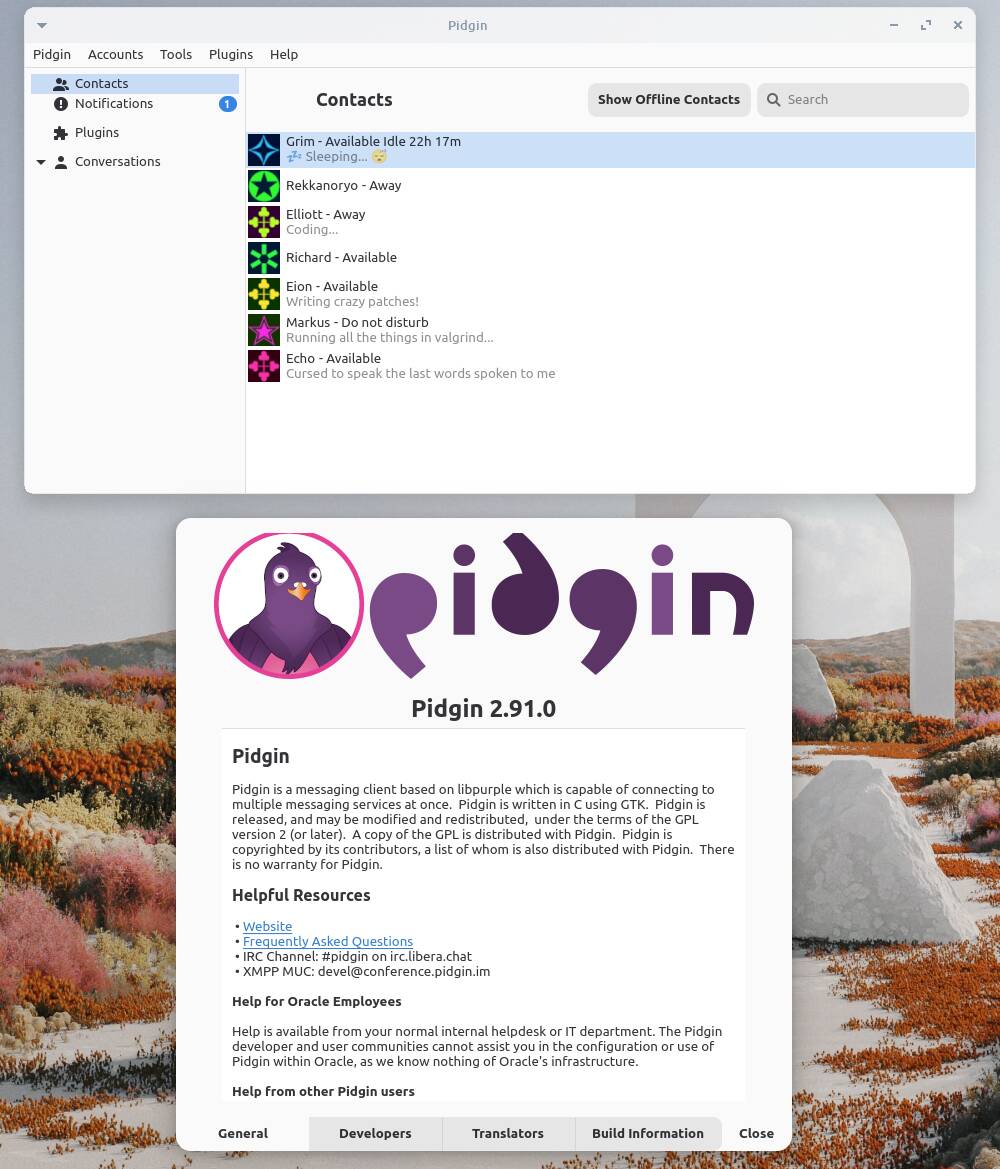
"Pidgin, the multiprotocol chat client, emphasizes user control over data and offers benefits of local message storage, contrasting with todayâs web-based chat applications."
"Despite being overshadowed by web apps, Pidgin continues to thrive with ongoing updates and offers a solution for those seeking a native chat experience."
"In an age dominated by web apps, Pidgin represents a return to user autonomy, providing control over messages that modern SaaS solutions often deny."
"With the new releases of Pidgin 3 approaching, users can expect a robust and flexible multiprotocol chat client that respects local data management."
Pidgin, a legacy multiprotocol chat client, remains relevant in the 2020s by providing users with control over their messaging data, unlike modern web applications. While these apps often store messages in the cloud, Pidgin allows for local message storage, making it a valuable tool for organizations that want to archive their discussions. With ongoing updates to Pidgin 3, including recent alpha versions 2.90 and 2.91, the project continues to evolve after 16 years, appealing to users who seek autonomy in their chat experiences.
Read at Theregister
Unable to calculate read time
Collection
[
|
...
]